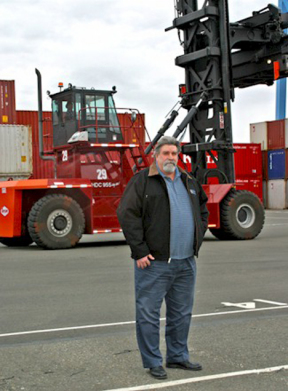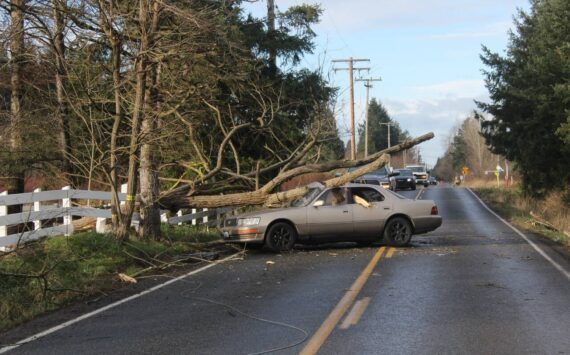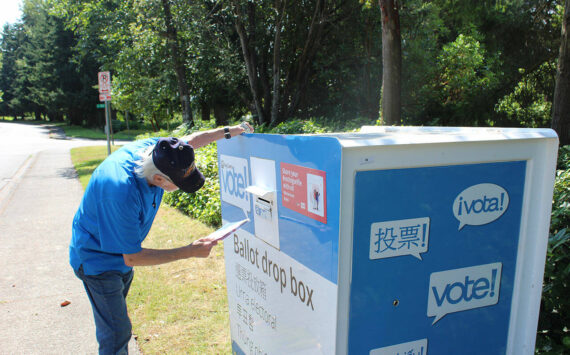Husky Terminal & Stevedoring, a major Port of Tacoma terminal operator, announced today that it recently began using biodiesel fuel for all diesel-operated vehicles and container handling equipment.
While the cargo activity at our terminal brings great economic benefits to this region, we also want to reduce the negative impacts of our activity as much as possible, said Assistant Vice President Steve Bassett, whose terminal has served Japan-based K Line in Tacoma since 1988. One of the ways we found we could achieve this was making the voluntary switch to biodiesel.
The benefits of moving to biodiesel, says Bassett, are apparent: According to a recent study by the U.S. Environmental Protection Agency, the reduction of diesel particulate matter (PM) emissions can make a positive impact on public health.
Prior to making its voluntary switch to biodiesel, Husky used approximately 11,200 gallons of low-sulfur diesel fuel per month. According to Bassett, Husky will begin using a 20 percent blend of biodiesel with low-sulfur diesel and plans to increase that blend to 40 percent biodiesel by this summer.
Cindy Lin, the Port’s Manager of Environmental Compliance, works with Port customers to manage the switch to lower emission fuels. Husky’s switch to the cleaner-burning, vegetable based biodiesel, says Lin, is reducing the emissions of sulfur dioxide, carbon dioxide and polycyclic aromatic hydrocarbons. By blending biodiesel and ultra-low sulfur diesel (ULSD), a terminal operator can reduce sulfur oxides by as much as 99 percent, compared to standard diesel fuel.
Biodiesel performs like petroleum diesel, but it produces significantly less air pollution, she said, noting that each of Husky’s 31 yard tractors and all cargo handling equipment is now running on a biodiesel/low sulfur diesel blend. Biodiesel is produced from a biodegradable, renewable resource, and it is safer for our environment.
We applaud Husky and the Port of Tacoma for taking this significant step to advance the use of biofuels and reduce emissions from port operations, said Dennis McLerran, Executive Director of the Puget Sound Clean Air Agency. This kind of leadership demonstrates to others the viability of making the switch to clean, alternative fuels.
Port Commissioner R. Ted Bottiger also commented on Huskys leadership. Our community benefits greatly from the jobs and economic development generated by maritime commerce at the Port of Tacoma. I congratulate Husky for making this voluntary decision because we all deserve to breathe clean air.





